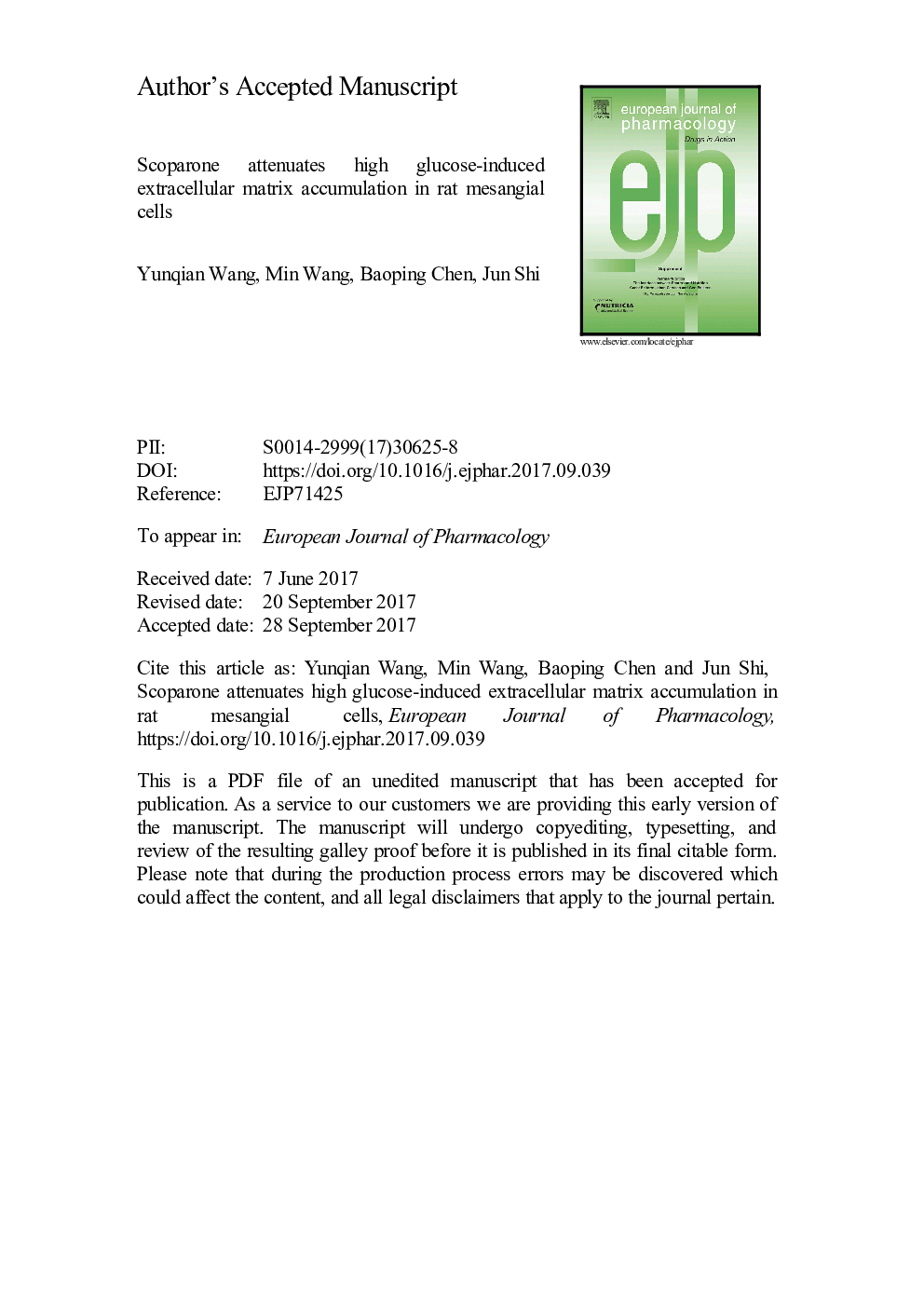| Article ID | Journal | Published Year | Pages | File Type |
|---|---|---|---|---|
| 8529944 | European Journal of Pharmacology | 2017 | 20 Pages |
Abstract
Scoparone, a major constituent of Artemisia capillaries, has a variety of biological properties including anticoagulant, hepatoprotective, anti-tumor, anti-fibrosis, anti-inflammatory, antioxidant, and antidiabetic activities. However, the renoprotective effect of scoparone under diabetic conditions remains elusive. Thus, the present study was undertaken to examine the role of scoparone in high glucose-induced mesangial cell proliferation and extracellular matrix (ECM) accumulation and elucidate the possible mechanism of action of scoparone. Our results demonstrated that treatment with scoparone significantly inhibited the proliferation of mesangial cells under high glucose conditions. In addition, scoparone reversed high glucose-induced fibronectin and collagen IV expression in mesangial cells, as well as suppressed reactive oxygen species production and NOX2/4 expression in high glucose-exposed mesangial cells. Mechanistic studies revealed that scoparone prevented the activation of ERK1/2 signaling pathway in high glucose-exposed mesangial cells, and an ERK inhibitor (U0126) protected mesangial cells treated with high glucose. Taken together, these results demonstrated that scoparone protects mesangial cells against high glucose damage in part through the inactivation of ERK signaling pathway. These findings suggest that scoparone may represent a potential drug for the treatment of diabetic nephropathy.
Related Topics
Life Sciences
Neuroscience
Cellular and Molecular Neuroscience
Authors
Yunqian Wang, Min Wang, Baoping Chen, Jun Shi,
